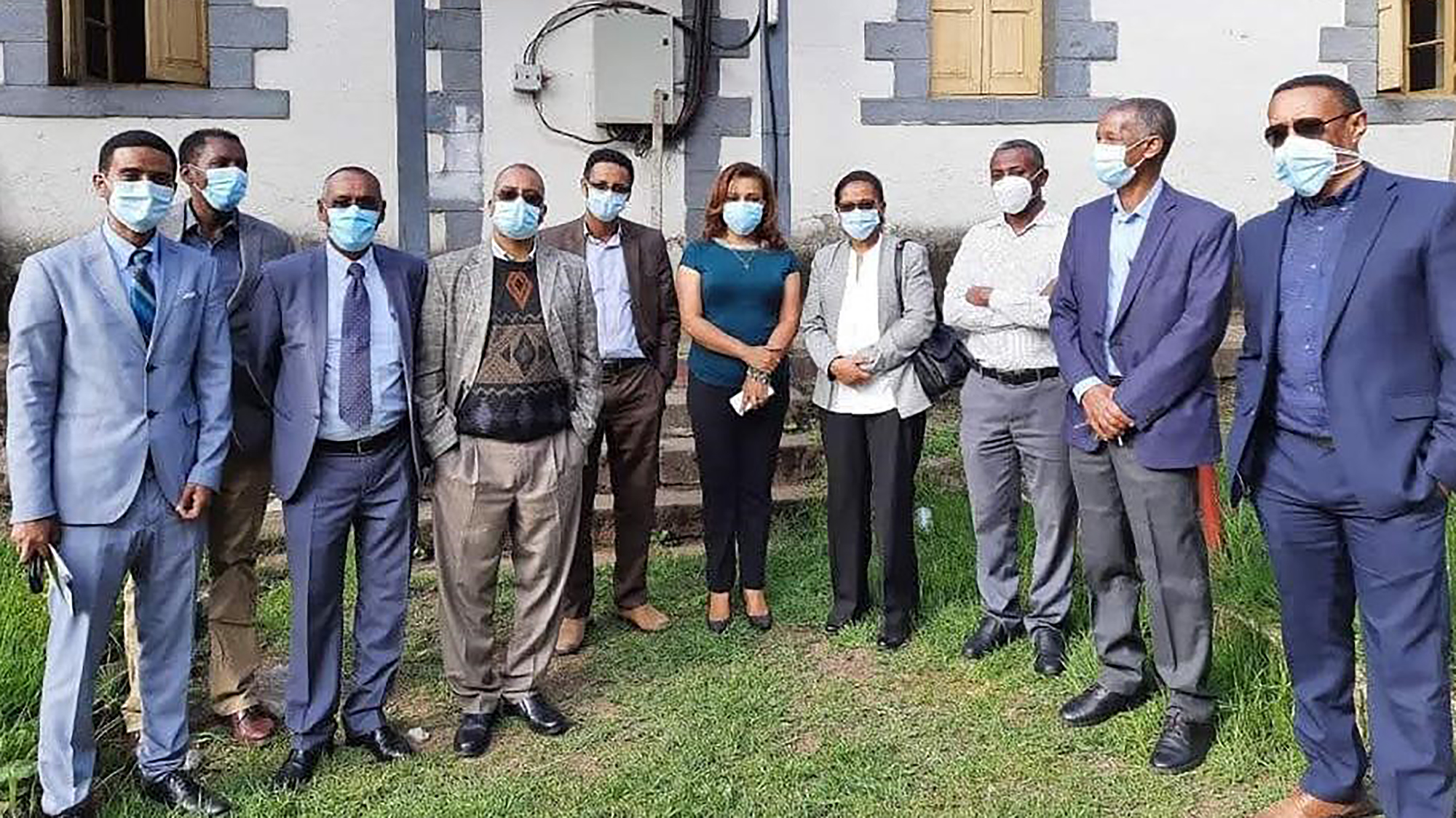Partnering with Addis Ababa University
The Challenge
The prevalence of vision impairment in Ethiopia is among the highest in sub-Saharan Africa. The Ministry of Health with the National Strategic Action Plan for Eye Health has recognized the need for health system and infrastructure development as well as investment in capacity building.
The Response
For more than 10 years, Emory University has been building a partnership with Addis Ababa University. This partnership has allowed specialties throughout the University's school of medicine to work in collaboration with our Ethiopian counterparts to educate both American and Ethiopian physicians. Each year, the Global Opthalmology program at Emory has provided as many as three clinical faculty - and one to two residents - to support Addis Ababa University eye clinic. The GO-E fellows also spend extended time in Ethiopia supporting resident education and serving as junior faculty. The GO-E fellows are instrumental in curriculum development, wet lab instruction, and in the development and implementation of the annual ICO course.
The Future
The GO-Emory program is committed to enhancing the delivery of quality eye care in Ethiopia by supporting ophthalmic training. Through curriculum and faculty support of the Addis Ababa residents as well as hosting subspecialty trainees on the Emory Eye Center campus, the GO-E program anticipates that Ethiopia will become an ophthalmic training center for all of sub-Saharan Africa.
"This is a source of pride and satisfaction."

An interview with GO-E partner Dr. Tiliksew Teshome Tessema, an associate professor of ophthalmology at Addis Ababa University.
This is not a fancy program, with a lot of fanfare. We are on the front lines, where people come to us, often at the later stages, when we may not be able to save their sight,
said Dr. Tiliksew Tessema, who joined us via Skype after putting in a 13-hour day in surgery and clinic.
Until COVID, the fellows came in every year and helped us to train, and we are glad they are coming back. At our University, we have three missions: to treat patients, to teach, and to do research. When the fellows come here, they join us in all three.
Visiting fellows from Emory are given the opportunity to identify an area of research for their year-long projects. Inevitably, their choices are a boon to the native medical team, which is always in need of trained help to investigate new treatment approaches. Tessema said this was especially true with retinopathy of prematurity, (ROP) an eye disease that affects premature babies.
It used to be that they [premature babies] would not survive here, so we did not have large numbers. But, now, more are surviving so we are looking for ways to better treat it.
He also had high praise for two fellows who recently helped collect data on the quality of cataract surgeries information that will help his team improve outcomes.
Learning to observe has a learning curve
But there is another more subtle knowledge transfer happening every day, he says, and its trajectory is outbound. Western visitors to the Ethiopian clinics are quickly awed by the defiant industry - and optimism - of this under-resourced region.
The doctors and fellows who come here from the United States and Europe come from an environment where everything they need [in their practice], they get,
he says.
They may say to themselves 'How many of these disposable instruments do I need for all of my patients today?' where we will ask 'How many patients can I help by sterilizing and re-using this instrument today?'
The example is a powerful metaphor about the daily choices that Ethiopian physicians make, almost without blinking, so that they can give their patients the best possible care. Same goal as their American counterparts, but a very different set of skills to get there.
I guess you might call it improvising or ingenuity,
he said. We can't do it for everything like Lasik equipment or a CT scanner. For those, we need the funds, for which we are also grateful. But day to day, this is how we make do. It's how our patients make do, as well.
Gratitude is another learning curve for many visiting fellows.
The doctor-patient relationship is really different here, too. The patients don't litigate. They are incredibly grateful for any time you spend with them. Even if you are not successful, they are so thankful that you spent time trying to help save their sight. Their gratitude, their energy, it is what sustains us during the many times when things are tough.
There are no substitutes for pride and satisfaction
Tessema is a well- respected vitreo retinal specialist - the first surgeon to perform a vitrectomy in Ethiopia. He did his retinal fellowship at the renowned Doheney Eye Institute in Los Angeles, and is a member of the American Academy of Ophthalmology. He has served as president of the Ophthalmological Society of Ethiopia and formerly headed up the ophthalmology department at Addis Abada. He could work almost anywhere in the world. He has chosen Ehtiopia, where ophthalmological care brings the promise of a greater impact.
I have never regretted, not even for a second, the work I am doing here,
he said. I have been involved in the training of 60 to 70 percent of the ophthalmologists in my country. This, to me, is a source of pride and satisfaction.

